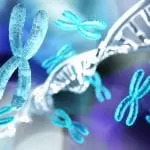[Originally published as Naturalism and Its Alternatives in Scientific Methodologies]
What is the nature of science? Many think this is a fairly easy question to answer. Science is about making observations and then forming the most reasonable conclusions based on those observations, right?
Well…that depends.
There are many (myself included) who think that the scientific community as a whole artificially censors certain conclusions because those conclusions don’t fit a criterion that has been imposed on science: that science can refer only to material causes. Because of this view, which is often called naturalism, many claim that science cannot deal with issues like purpose, will, the soul, or God.
Of course, this flies in the face of science history, which shows us that the science we have today was formed by those who continually incorporated God into their scientific research.
The purpose of the book, Naturalism and Its Alternatives in Scientific Methodologies, is to explore how naturalism overtook science and how that error can be corrected. The book is actually a compilation of the proceedings of the 2016 Conference on Alternatives to Methodological Naturalism. As such, it is really a collection of essays written by multiple authors.
Some of the authors deal with the problem of naturalism’s infection of science, others discuss how scientists can build alternatives to naturalism, and others make suggestions for how non-naturalistic causes can be used to guide research in certain fields.
But wait a minute.
Science is about studying the natural world — doing repeatable experiments and coming up with conclusions that apply uniformly throughout nature. Doesn’t anything supernatural work against that? After all, if miracles can occur, doesn’t that mean I can’t trust my experiments? Couldn’t any result I get in the lab be the work of a capricious demon?
Of course not, and the author of the second contribution to this book, Tom Gilson, gives us the obvious reason why.
He begins by using a quote from famous biologist J.B.S. Haldane:
My practice as a scientist is atheistic. That is to say, when I set up an experiment I assume that no god, angel or devil is going to interfere with its course; and this assumption has been justified by such success as I have achieved in my professional career. (p. 39)
As Gilson points out, this is not atheistic thinking at all. Indeed, any Christian would make that same exact assumption. Why? Because miracles are very rare, and in the Christian worldview, they are done for specific purposes. Thus, a Christian would never think of any supernatural interference in his or her experiments. As Gilson states:
The occasional, infrequent miracle does nothing to upset the scientific method. Scientists routinely encounter anomalous data, and they have a routine for what to do: either re-run the experiment, cast out the data point as a statistical outlier, or otherwise pick up and start over again. This is not an unusual practice in science. (p. 43)
As someone who has done a lot of original scientific research, I can attest that this happens all the time. Indeed, when we had unexplained noise in our experimental systems, my atheist Ph.D. adviser would call the noise “demons,” because usually, when we finally got rid of the noise, we had no idea how we did it. As nuclear chemists, we are trained to spot anomalies, and they generally don’t interfere with our conclusions.
As Gilson says, the key to science is regularism. Science expects the universe to behave with reliable regularity, and there is nothing in Christianity that would say otherwise. Indeed, some have made the case that the Christian worldview is what gave us the expectation of regularism in science.
But how can we incorporate the supernatural into science?
That’s what most of the authors discuss. While there are many reasonable suggestions, I think James D. Johansen‘s is probably the best. Indeed, it is the way I think some really good science has already been done. He calls his method “applied theology.”
Essentially, he says that the scientist can use theological ideas (or presumably any ideas that come from a supernatural viewpoint) to come up with hypotheses, and then those hypotheses can be tested by observation or experiment. If the hypotheses are consistent with the data, then the theologically-inspired idea has some scientific merit. This is the way Copernicus came up with his view of the heavens, and it is even the way some modern scientists have come up with their hypotheses.
Consider, for example, Russell Humphreys’s work on planetary magnetic fields.
He took a statement from Scripture (2Peter 3:5) and used it to come up with a model of how God might have supernaturally created the planets. He then used that model to predict the magnetic fields of each planet. His model was successful for the magnetic fields that had already been measured, but those of Neptune and Uranus weren’t known at that time. Later on, they were measured, and his predictions were consistent with the data. That same model was used to predict how a recent measurement of Mercury’s magnetic field would compare to the previous measurement. Once again, his prediction was accurate.
It seems to me that this is a perfect example of how science can incorporate the supernatural. While the model itself depends on a miracle, the natural results of that miracle can be tested. In other words, while science cannot explain miracles, it can (at least on some occasions) test whether or not those miracles actually occurred.
As I said previously, some of the authors make suggestions for how non-naturalistic causes can be used to guide specific fields. The first applies to computer science, the second to linguistics, and the third to psychology. While those were interesting, I found the fourth to be very intriguing, mostly for introducing a conclusion from the famous ENCODE experiments that I had never before considered. I will discuss that in a later blog post.
For now, I would like to suggest that anyone doing scientific research or planning to do scientific research should read this book. It will provide a lot of valuable guidance on how to do your research in a way that is unfettered by artificial constraints.







